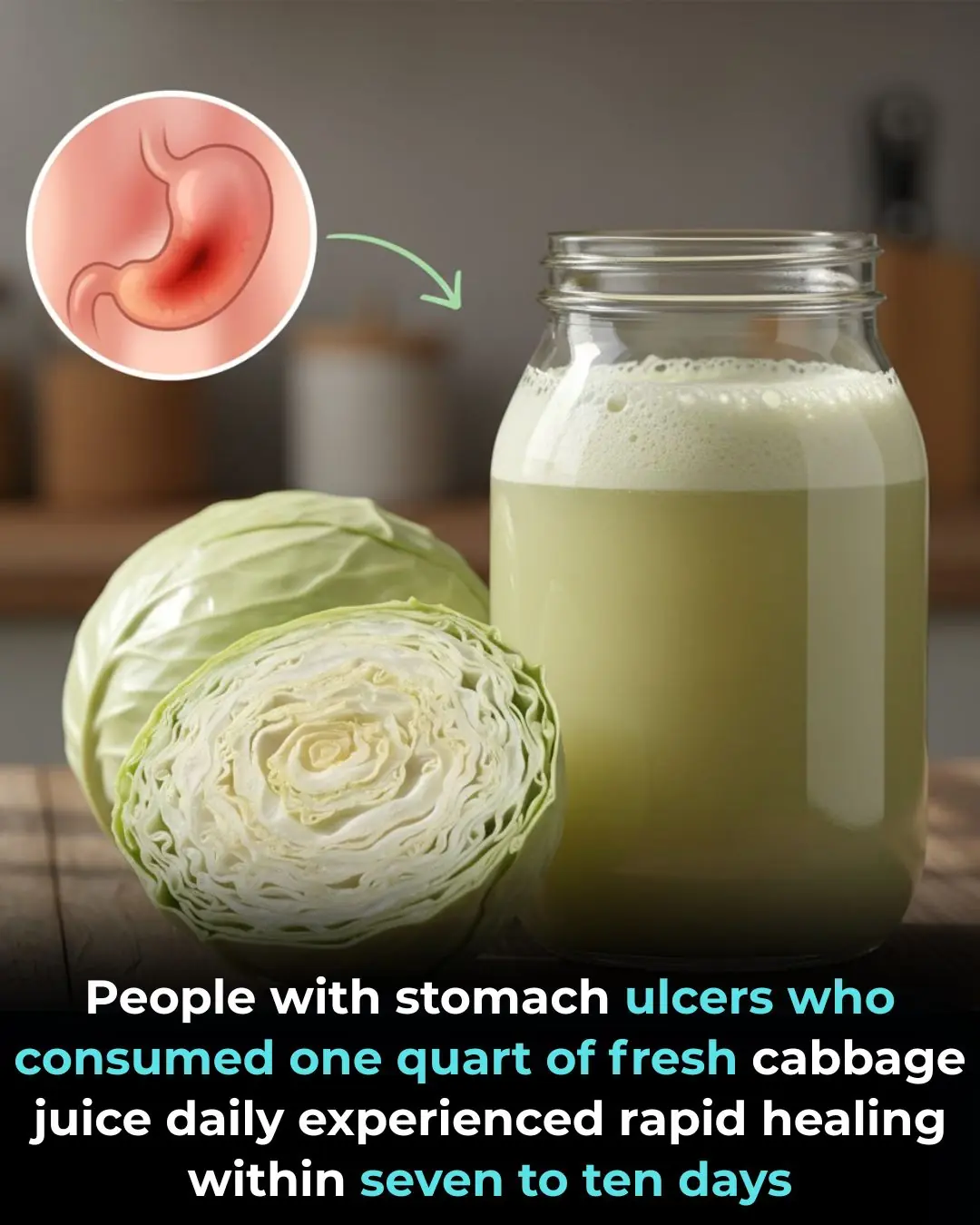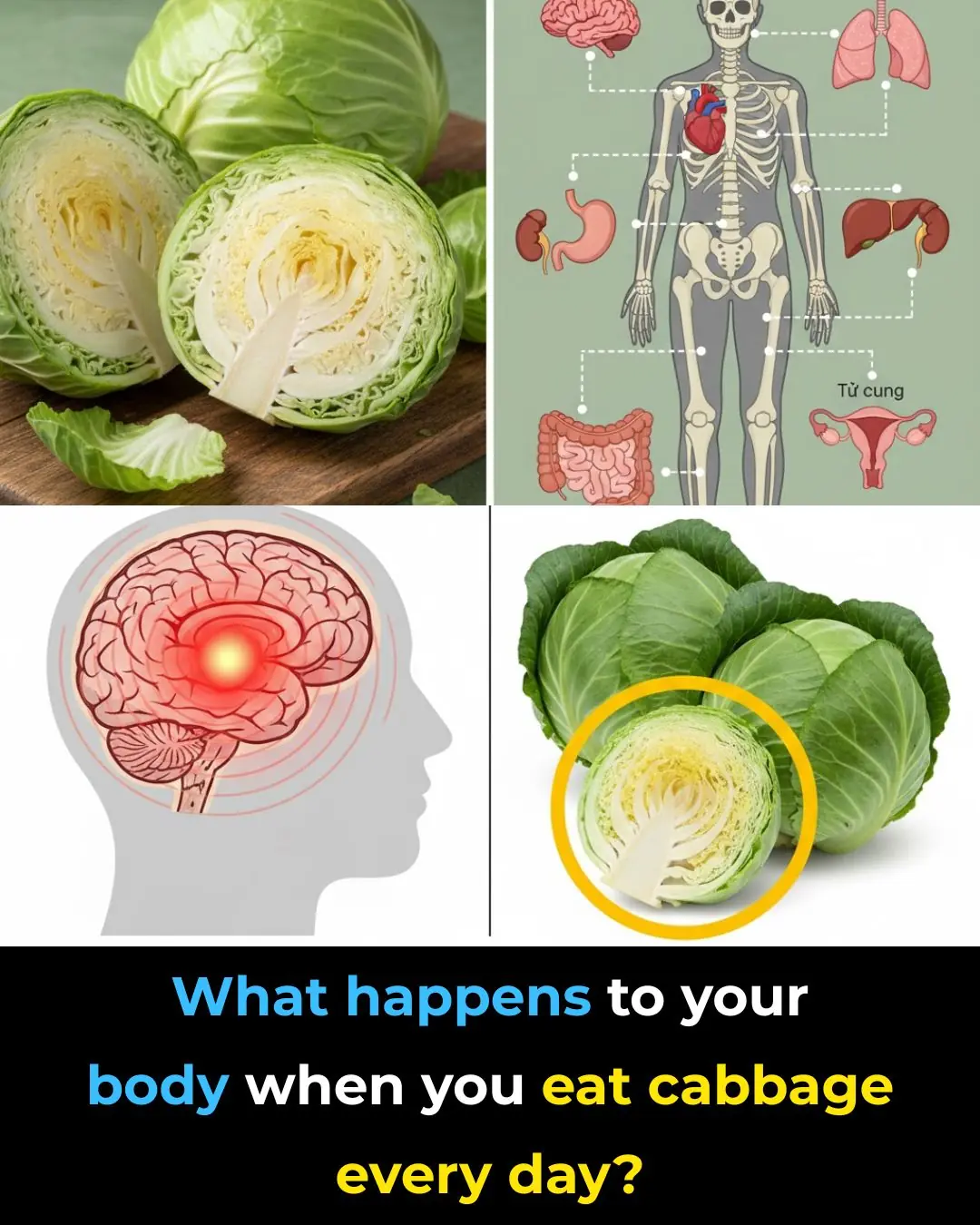
4 Types of People Who Should Limit or Avoid Eating Cabbage
4 Types of People Who Should Limit or Avoid Eating Cabbage

Cabbage is a nutritional powerhouse, celebrated globally for being affordable, versatile, and packed with essential nutrients. This often-overlooked vegetable, available in various colors like red, purple, white, and green, is a staple in many cuisines. It's especially rich in vitamin C, fiber, vitamin B6, and folate, all vital for energy metabolism and nervous system function. Cabbage also boasts powerful antioxidants that may protect against heart disease, certain cancers, and vision loss, while helping to reduce chronic inflammation, improve digestion, and lower blood pressure and cholesterol.
Despite its impressive health benefits, certain individuals might need to be cautious about including cabbage in their diet.
Who Should Be Careful with Cabbage?
-
People with Thyroid Conditions Cabbage, along with other cruciferous vegetables, contains compounds called goitrogens. These substances can interfere with the thyroid gland's ability to absorb iodine, which is crucial for hormone production. If consumed in large quantities, goitrogens could potentially disrupt thyroid function, especially for those already managing conditions like goiter (an enlarged thyroid gland). If you have thyroid issues, it's wise to approach cabbage with care and consult your doctor.
-
People with Digestive Sensitivities For some, cabbage can trigger uncomfortable digestive symptoms like bloating and gas. This is due to its content of raffinose, a complex carbohydrate that the human body struggles to fully digest. When raffinose reaches the intestines, it ferments, leading to the production of gas. If you frequently experience digestive discomfort or have irritable bowel syndrome (IBS), cabbage might worsen your symptoms.
-
People Prone to Allergies or Eye Irritation Cabbage naturally contains histamines, compounds that can trigger allergic reactions in sensitive individuals. For those prone to allergies, consuming cabbage might lead to symptoms such as a rash, itching, watery eyes, sneezing, or even eye irritation. If you have a known sensitivity to histamines or experience these reactions after eating cabbage, it's best to avoid it.
-
People with Kidney Problems Individuals with kidney issues should be cautious about eating cabbage due to its oxalic acid content. Oxalic acid can bind with minerals like calcium, potentially forming kidney stones. For those already prone to kidney stones or managing kidney disease, limiting foods high in oxalic acid, including cabbage, is often recommended by healthcare professionals.
While cabbage offers a wealth of nutrients, understanding these potential interactions can help you make informed dietary choices for your specific health needs. Always consult with a healthcare professional or a registered dietitian if you have concerns about how certain foods might affect your health.
News in the same category


Doctor Reveals Eating Dragon Fruit Causes…

One thing you definitely need to know to avoid

Why do your hands fall asleep while you sleep?

Common changes that can occur after age 70 and why it’s important to know about them early

Doctors reveal that consuming lemon causes in...

Papaya Leaves for Long, Strong, Gray-Free Hair in Just 3 Days

The 6 essential vitamins every woman should consume after 40 years

Can Garlic and Lemon Really Support Sharper Vision? The Everyday Ingredients That May Help Protect Your Eyes

Pumpkin Seeds

11 Powerful Reasons to Use It Every Day

Leg Pain, Rheumatism, Varicose Veins, Arthritis: My Mother Could No Longer Walk Because of the Pain — Until We Tried This Simple Remedy

Aneurysm: Signs and Symptoms

Fresh Cabbage Juice and Rapid Healing of Peptic Ulcers: Evidence from a Human Study

Scientific discovery reveals that the cause of Alzheimer's could originate in your mouth

Here's the ideal frequency for staying healthy.

What Happens to Your Body When You Eat Cabbage Every Day?

A deficiency in this mineral is causing age spots: Discover the solution

The Little-Known Alzheimer’s Symptom That Appears at Night

10 signs in your body that reveal a deficient protein intake
News Post

(Part 1) One Act of Discrimination, Millions at Risk

What Police Found Behind That Door Was Never Meant to Be Seen

Doctors Gave Up… Then a Hospital Sweeper Did the Unthinkable

A Billionaire’s Loyalty Test: What Three Women Bought with His Credit Card Revealed the Truth About Love and Compassion

She Risked Her Life to Save a Baby No One Was Supposed to Know About

From the Streets to the Hangar: How a Homeless Girl Silenced Experts and Changed Everything with One Touch

Loneliness in a Golden Mansion: How a Disabled Millionaire Found Healing Where He Least Expected

They Trusted Her With Their Child — Big Mistake

When Hope Comes From the Least Expected Place: The Day a Homeless Boy Changed a Billionaire’s Fate

A Billionaire’s Office, a Cleaner’s Exhaustion: How One Late-Night Encounter Sparked a Battle Over Power and Dignity

A Father’s Visit Exposes a Hidden Truth: How One CEO Confronted Silence and Racism Inside His Daughter’s School

Belgium Bans Dolphin Captivity, Marking a Major Victory for Animal Rights and Marine Welfare

A Wedding of Compassion: How One Couple Turned Their Special Day into Hope for Homeless Dogs

Peyton’s Final Night: A Shelter Cat’s Story of Loss, Love, and the Silent Crisis Facing Abandoned Animals

You will be surprised at its effects

Doctor Reveals Eating Dragon Fruit Causes…

One thing you definitely need to know to avoid

Why do your hands fall asleep while you sleep?

Common changes that can occur after age 70 and why it’s important to know about them early
